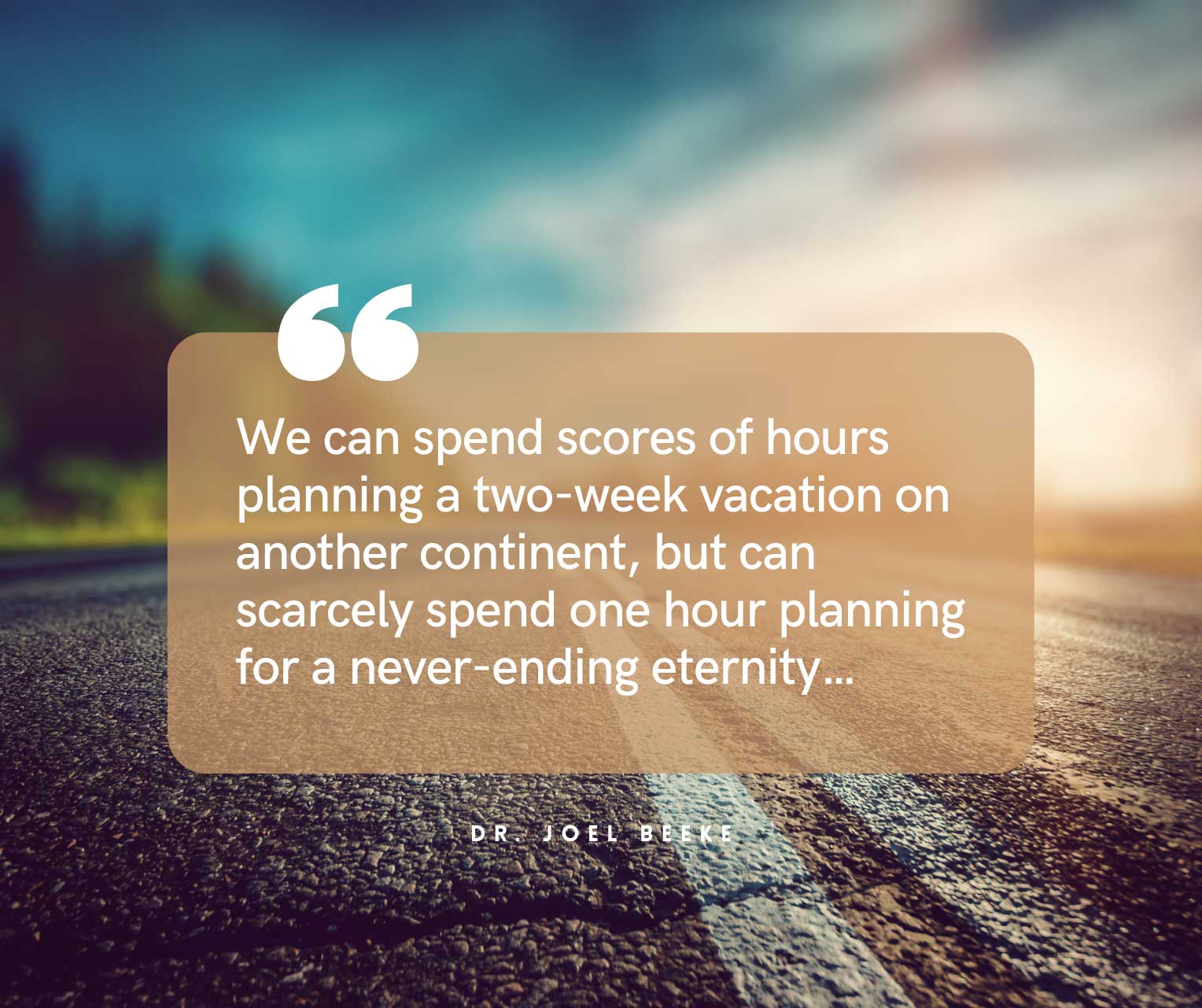
Dying and death are profound, hostile, even terrifying. We all must experience an unspeakable, radical separation of our soul and body in which our soul will enter a realm fitting to its spiritual state at the moment of its final separation—that is, either heaven or hell.
Intellectually we know that dying and death are real and certain, but emotionally and spiritually we are often not able to face it. We postpone making our wills and preparing for our funerals. We find it challenging to stand beside a casket for any length of time to let the reality of death sink deep into us. Even our language betrays us: we speak of passing away or expiring rather than death. We speak of memorial parks rather than graveyards.
Have you ever tried to meditate for even ten minutes on the fact that you are dying and on your inevitable death and afterlife? By nature that is nearly impossible to do. Even as Christians, it can be difficult. We can spend scores of hours planning a two-week vacation on another continent, but can scarcely spend one hour planning for a never-ending eternity…
We must be personally prepared to die—spiritually, ethically, and physically—so that our death will be “gain” (Phil. 1:21). To that end, Martin Luther (1483–1546) said, “Every man must do two things alone; he must do his own believing, and his own dying.”
Excerpt From
Dying and Death: Getting Rightly Prepared for the Inevitable
Joel R. Beeke








